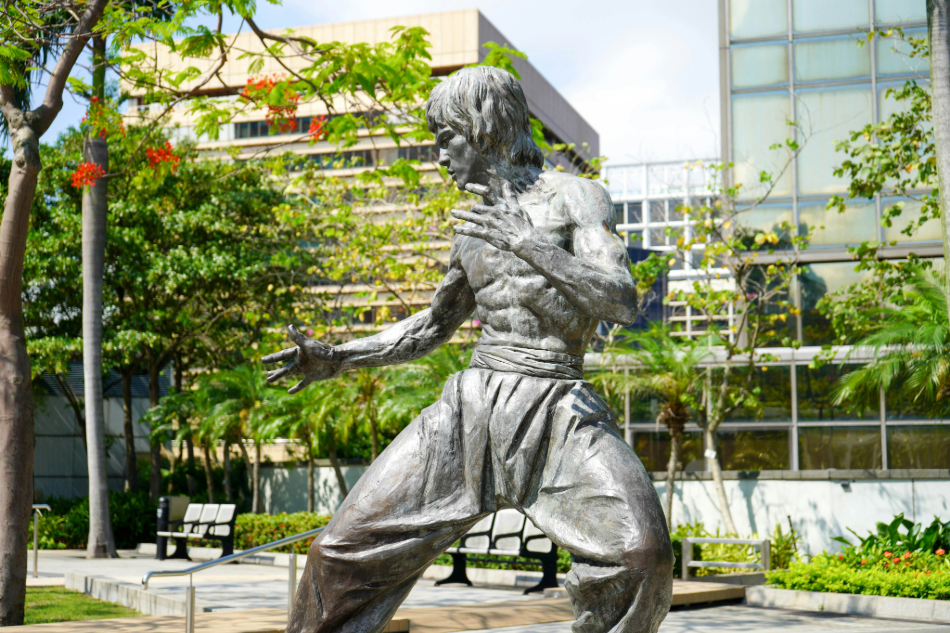It’s time to reevaluate what it means to be a “legend.”

By Shonté Jovan Taylor, M.Sc., Ph.D.(c), Photo by Man Chung
When we ponder the term “legend,” a myriad of images and names may flutter through our minds. Perhaps the visage of Willie Nelson strumming his guitar surfaces, or maybe it’s the indomitable spirit of women from various eras—icons whose lives and deeds have transcended the confines of their time.
Yet what truly constitutes a legend?
Beyond the glitter of fame and the echoes of accolades, a deeper narrative unfolds, one that encompasses individuals like Harriet Tubman, Mother Teresa, Oprah Winfrey, Simone Biles, Rosalind Franklin and the unsung heroines of our personal lives, such as our mothers. These women share a common thread: years of experience, wisdom, and the profound ability to transform the world or deeply touch an individual’s life.
Unfortunately, society’s lens often narrows the scope of who gets to be labeled a “legend,” with a tendency to skew toward male figures, inadvertently sidelining the monumental contributions of older women—a glaring reflection of ageism.
However, in the spirit of challenging and reshaping these perceptions, we spotlight the achievements of legendary women, including music icons like Tina Turner and local luminaries such as the late Texas Senator and U.S. Congresswoman Barbara B. Jordan, heralding a call to acknowledge and celebrate their indelible impact.
Austin, renowned as the live music capital of the world, has been the cradle for legends like Stevie Ray Vaughan, Janis Joplin and Lucinda Williams, whose stories and music resonate with the soul of the city. Their narratives, alongside those of visiting legends like Turner and Duke Ellington, weave a rich tapestry of Austin’s cultural and musical heritage. This vibrant scene also nurtured groups like The Chicks (formerly the Dixie Chicks), who, with their unique blend of genres and bold socio-political stances, encapsulate the pioneering spirit of Austin’s music community.
Yet the journey to becoming a legend, particularly for women in the entertainment industry, is fraught with challenges. The industry’s obsession with youth and the marginalization of older women highlight a pervasive ageism that stifles voices and careers. This bias is not just confined to the entertainment sector but is a widespread societal issue that affects women’s job security, financial stability and self-esteem, further exacerbated by gendered ageism.
To counteract these biases and foster a culture that celebrates legendary women, we must embark on a journey of redefinition and recognition.
Redefine “Legend”
Defining a legend on our own terms means acknowledging the rich tapestry of experiences, challenges and triumphs that shape a legendary life. It’s about understanding that legend is not just a title bestowed by time or society, but a mindset and a testament to the human spirit’s resilience and capacity for greatness.
Create Your Own Legendary Path
Women across various fields, from entrepreneurship to the arts, are crafting their legendary paths, breaking barriers and setting new benchmarks for success and impact. Figures over the age of 50 years old like Vera Wang, Gloria Steinem, Vice President Kamala Harris and Shonda Rhimes exemplify the diverse trajectories through which women can ascend to legendary status, proving that age is but a number and that true greatness knows no bounds.
Trust in Your Brilliant and Wise Brain
Embracing this journey requires a deep belief in one’s value, the courage to forge one’s own path and the wisdom to seek inspiration from those who have navigated similar roads. It’s about trusting in the brain’s remarkable ability to grow, adapt and innovate throughout life, and giving oneself the grace to overcome biases and societal constraints.
In the end, the essence of being a legend transcends age, gender and societal expectations. It’s about shaping cultures, breaking barriers and leaving an indelible mark on the hearts and minds of others. Each of us has the potential to be a legend in our own right, in our own time.
By recognizing and celebrating the legendary figures among us, we not only honor their contributions but also inspire future generations to pursue their own paths to greatness. Legends are not just those who are remembered in history books; they are individuals who inspire, challenge and change the world—one act, one voice, one story at a time.

